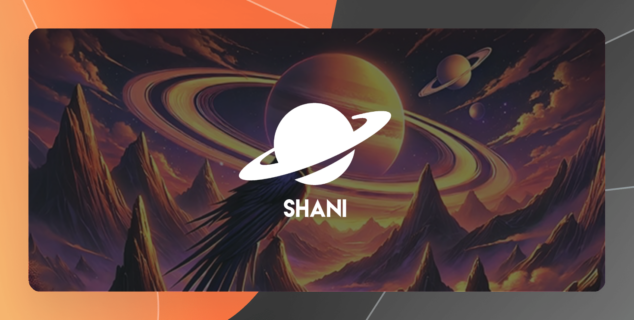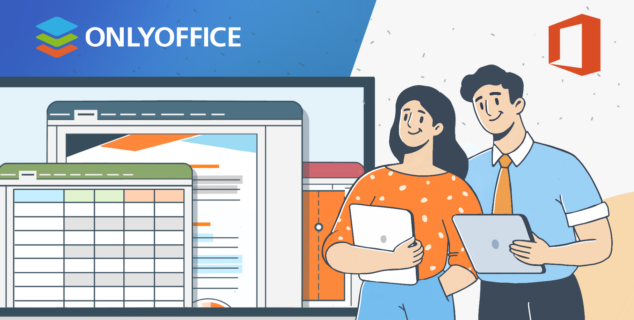TeamLab: Open Source Compared with SaaS
 Hello to everyone, despite the fact that today’s post will be interesting first of all to the users of TeamLab open source version and to our prosperous customers who are thinking over whether to install this edition!
Hello to everyone, despite the fact that today’s post will be interesting first of all to the users of TeamLab open source version and to our prosperous customers who are thinking over whether to install this edition!
I’ll tell you about TeamLab open source version, where the difference between the open source and SaaS versions lies and give you some advice on how to cope with troubles you might face while using the open source version.
As you surely know, from the very beginning of TeamLab’s way its source code was put into the open source pot and everybody could download, test, evaluate, customize, and improve it under the GNU GPL v.3 license. At that time many of our customers experienced difficulties with TeamLab deployment on their own servers, that’s why we decided to alleviate this problem by creating an installation file that is available at SourceForge. You can just download and run it on your server, TeamLab will be installed automatically with no effort at all. Just in case you get problems, we also prepared instructions as a PDF file that contains the description of actions performed during the automatic installation process as well as the ‘System Requirements’ and ‘Troubleshooting’ sections.
The current version 6.0 includes the following modules and tools:
1. Community
2. Projects
3. Talk
4. Documents
5. CRM
6. Calendar
Nevertheless TeamLab open source version has a few limitations, such as:
- Mobile version
The open source edition doesn’t contain the mobile version, so you can’t access your portal from Android phones and iOS devices that would be possible, if you’d use TeamLab SaaS edition.
- Viewing and editing documents directly on your portal
Document Viewer and Editor are not included into TeamLab open source edition. To view or edit a document, you need to download it to your computer hard disk drive, view/edit it, and upload back to your portal in case you made some changes in the file.
As for the access rights management in the ‘Documents’ module of the open source version, it’s present there but in some other form:- If you are given the ‘Read Only‘ access rights to a document, you’ll be able to download, view, and even edit it on your computer, but you can’t upload it to the portal overwriting the existing document. You’ll have to save it with another name.
- If you have the ‘Full Access‘ rights to a file, you’ll be able to download, view, edit it on your computer, and download to your portal replacing the existing one.
Note: If you download more than one file from your portal, it will be packed into a ZIP archive. - Importing documents
Using the SaaS version you can import your documents from various sources like Google Docs, Box.net, Zoho. This feature is disabled in the TeamLab installation available at SourceForge, but you can activate it adding the corresponding registration keys (you can get from Google, Box.net, Zoho) into the web.consumers.config file:
<add name="googleConsumerKey" value="<YOUR_KEY>"/>
<add name="googleConsumerSecret" value="<YOUR_KEY>"/>
<add name="box.net" value="<YOUR_KEY>"/>
<add name="box.net.framehandler" value="http://<YOUR_TEAMLAB_DOMAIN>/import/boxframecallback.aspx"/>
<add name="zoho" value="<YOUR_KEY>"/>
- Creating backups
Using TeamLab open source version, you can’t create backups of your data on the ‘Settings’ page of your portal like the SaaS version users do. This option is not present there. But you can still create a backup of your portal data manually. To do that, please copy the following databases:
services\core.db3
web.studio\addons\calendar\App_Data\calendar.db3
web.studio\App_Data\WebStudio\webstatistic.db3
web.studio\App_Data\WebStudio\webstudio.db3
web.studio\Products\Community\Modules\Blogs\App_Data\ASC.Blogs.Data.db3
web.studio\Products\Community\Modules\Bookmarking\App_Data\BookmarkingDB\bookmarking.db3
web.studio\Products\Community\Modules\Forum\App_Data\ASC.Forum.Database.db3
web.studio\Products\Community\Modules\News\App_Data\feeds.db3
web.studio\Products\Community\Modules\PhotoManager\App_Data\images.db3
web.studio\Products\Community\Modules\Wiki\App_Data\wiki.db3
web.studio\Products\Projects\App_Data\ASC.Projects.db3
web.studio\Products\Files\App_Data\ASC.Files.db3
web.studio\Products\Crm\App_Data\ASC.Crm.db3
…as well as the following data:
Data\
web.studio\Data\
web.studio\Products\Community\Modules\Blogs\Data\
web.studio\Products\Community\Modules\Bookmarking\Data\
web.studio\Products\Community\Modules\Forum\Data\
web.studio\Products\Community\Modules\News\Data\
web.studio\Products\Community\Modules\PhotoManager\Data\
web.studio\Products\Community\Modules\Wiki\Data\
web.studio\Products\Projects\Data\
web.studio\Products\Crm\Data\
Installing TeamLab open source version, you should bear in mind that
– you need a server with Microsoft operating system (a server version is recommended),
– there is a delay in releasing new features/tools/modules in comparison with the SaaS version,
– it has the limitations mentioned above.
However, in this case you
+ get full control over your intranet portal and consequently, double safety of your sensitive data,
+ are free to modify and configure the source code to fit the specific requirements of your company,
+ are not tied to our development or monetization plans.
That’s all for today. I hope, you find this information useful. If you have any questions, please feel free to ask them in comments to this post. In case you have any ideas or suggestions concerning the open source/server solution, please share them with us on our feedback page.
Create your free ONLYOFFICE account
View, edit and collaborate on docs, sheets, slides, forms, and PDF files online.


